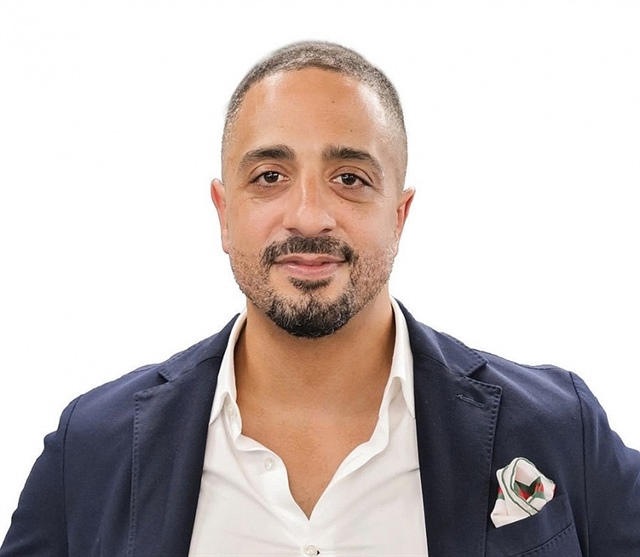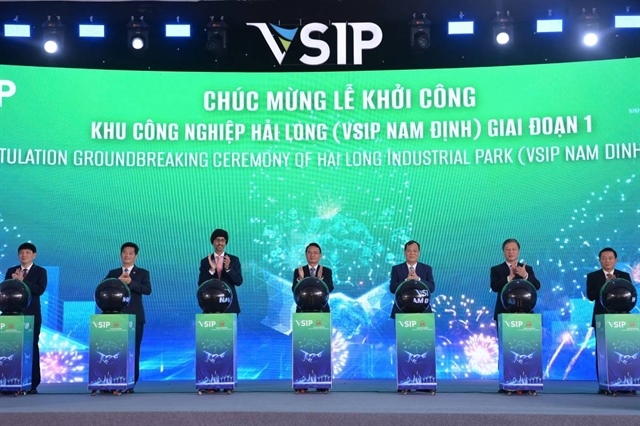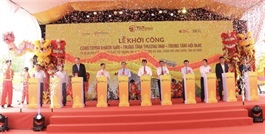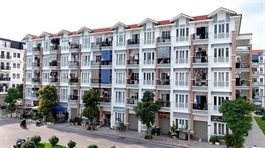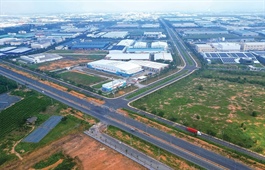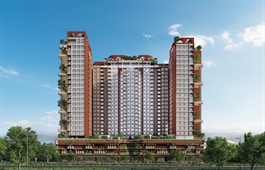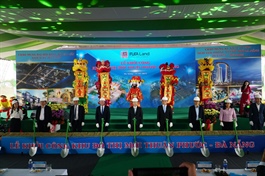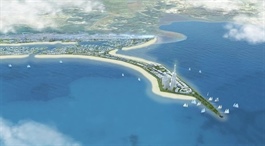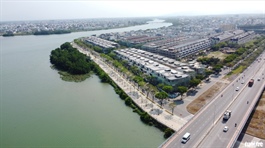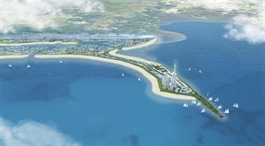Vietnam strengthens position of hospitality property market
Vietnam strengthens position of hospitality property market
Vietnam continues to catch the eye of developers and operators from home and abroad in resort real estate development, especially from Asia and private equity funds.
At the Meet The Experts conference held in Ho Chi Minh City last week, Michael Wirz, director of SonKim Land, said that investment opportunities in the hospitality sector were widespread, especially in Ho Chi Minh City and provinces with newly built and operational infrastructure systems.
“In Ho Chi Minh City, SonKim Land has projects located in Thu Duc and is benefiting greatly from the new metro line coming into operation,” he said. “In particular, opportunities are expanding with projects located along the Saigon River. If projects along the river can be developed, it will change the face of the city and the tourism industry. I see opportunities are opening up for all investors here.”
In addition to projects in the centre of Ho Chi Minh City, SonKim Land is continuing to implement branded residence projects in Cam Ranh and Phan Thiet cities, deemed the capitals of resort real estate.
“Mix functional and luxury hospitality projects that combine housing and hotels hold much potential, and we believe it will bring efficiency to both developers, operators and the customers in the future,” he said.
Seng Soon Chuah, development director for Southeast Asia & Pacific at holiday company Club Med, said that the future of the hospitality segment was bright, especially resorts in prominent locations such as Ho Chi Minh City and coastal provinces.
“We have seen many developers researching and encouraging the all-inclusive resorts, which generally include lodging, unlimited food and drinks, entertainment, and other recreational activities in the price of a stay,” Chuah said.
He added that all-inclusive resorts were also one of his focuses. “All-inclusive concepts will have much room to develop. We have hotels in Japan, in Indonesia and are looking for opportunities in Vietnam. We are cooperating with local partners and are looking for strategic projects,” he said.
Meanwhile, Nelly Phuong Ta, head of Hotel Project Management at Masterise Group, believed that many customers now have higher resort expectations, so the hotel-residential hybrid is a trend that is creating new experiences for guests.
“The experiences in this hybrid model are providing unique and sophisticated fillings that meet the tastes of the high-end customer segment,” Ta said. “We have had a good start when combining luxury hotels with apartments in a venture because we have a team of professional staff trained abroad to serve this segment - the most luxurious experience for customers, alongside lower costs.”
Ta added that Masterise is looking for more opportunities for other hotels, and will be announcing a 2,000-room venture later this year.
David Roberts, COO of Fusion Hotel Group, agreed that the hotel-residential hybrid was a growing trend in resort real estate. “This is the segment we have focused on developing over the past 18 months. Over half of our projects are now hotel-residential hybrids, and this is what creates a different experience for customers,” Roberts said.
Meanwhile, Omar Romeo, chief development & luxury officer from Minor Hotels, said that searching and developing unique hospitality products such as branded residences was a growing demand for both developers and end-users, especially as living standards increase.
“Adding to that, wellness hospitality and developed infrastructure, convenient connection between central areas and the airport system is enhancing the experience for tourists, which will entirely change the market landscape in the future,” Romeo said.
In the first two months of 2025, Vietnam welcomed 3.96 million international visitors, an increase of 30 per cent over the same period in 2024. Of these, the number of international visitors from Asia accounted for the majority with more than three million.
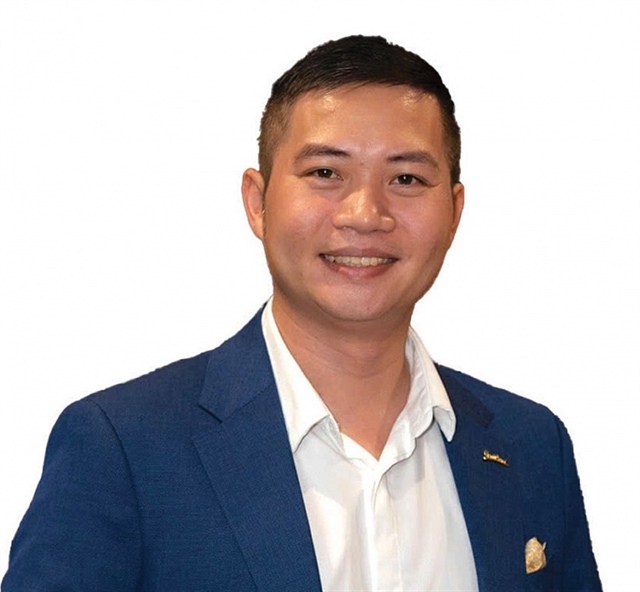
Vietnam strengthens position of hospitality property market, illustration photo |
Chau Nguyen, development director for Vietnam Radisson Hotel Group
|
In Vietnam, after nine years of development, Radisson currently operates 12 hotels, with six already in operation and six others under development. By early 2025, Radisson’s expansion in Vietnam reached a new peak with the opening of two hotels in Danang and Hoi An and one in Mui Ne. In April, we will launch a 300-room hotel in Halong Bay.
The group is implementing an ambitious growth strategy, aiming for significant expansion in the near future. Our main focus is on high-potential tourist destinations such as Hanoi, Haiphong, Dalat, Nha Trang, and Can Tho, which appeal to both international and domestic travellers.
While most of Radisson’s projects are situated along Vietnam’s coastline, the group is also actively expanding into major urban destinations like Hanoi and Ho Chi Minh City, recognising their strong growth potential.
In addition, Radisson is exploring opportunities in emerging markets such as Sapa, the northwestern provinces, and the Mekong Delta region, including Can Tho. Radisson is among the few hotel groups that develop their own brands independently, rather than expanding through mergers and acquisitions.
This approach provides a competitive advantage, ensuring consistency in project development from inception, and avoiding potential conflicts of interest with external parties.
Looking ahead, we see strong potential in the resort real estate market. We have observed increasing demand from international travellers, particularly from India and the Middle East, with steady growth across Southeast Asia. Like other hotel groups, Radisson remains optimistic about policies that encourage international tourism and facilitate the return of overseas Vietnamese.
Micheal Piro, Co-CEO, Indochina Capital
|
Indochina Capital has invested in the Vietnamese market for more than 15 years and has developed strongly in the resort real estate sector. It must be said that this segment has been quite difficult in the last 3-4 years. However, I believe that the next 2-3 years will be the time for us to recover new development projects because the supply in recent years has been limited, and the demand is accumulating at a high level and now will be the time to explode.
In addition, technology is increasingly developing in resort real estate management. With the support of technology, we can better identify market information, help developers, operators and consumers to be more confident about the market.
I am thrilled because almost every week the market changes positively. We have had a pretty good start for 2025 in terms of attracting tourists to Vietnam, forecasting a good business year for the tourism market with 23-25 million tourists to Vietnam to the year’s end. This figure will surpass the record of previous years.
The Vietnamese market serves the entire global supply chain, so Vietnam is gradually becoming a destination for investors in the manufacturing sector. Along with tourism, manufacturing are two factors that help develop hospitality.
Therefore, the future is full of growth opportunities. We can attract foreign investment, but we also need to have local partners with enough capacity to successfully implement projects with us because they understand the market, identify business and legal risks.
- 12:42 27/03/2025


